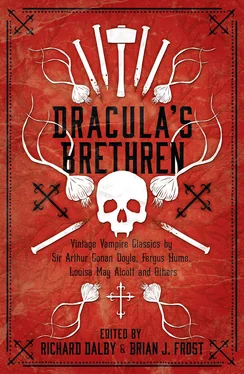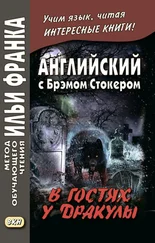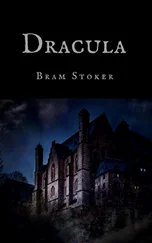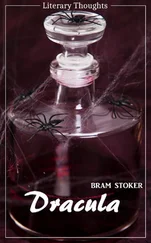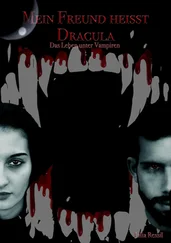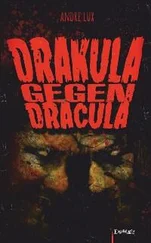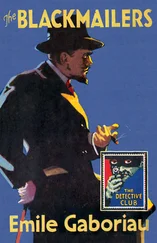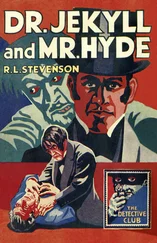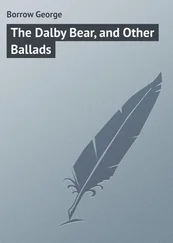It was evening when they turned off the high-road; the sun had only just set and the warmth of the day still lingered in the air. The theologian and the philosopher walked along in silence smoking their pipes; the rhetorician, Tibery Gorobets, kept knocking off the heads of the wayside thistles with his stick. The road ran between scattered groups of oak and nut trees standing here and there in the meadows. Sloping uplands and little hills, green and round as cupolas, were interspersed here and there about the plain. The cornfields of ripening wheat, which came into view in two places, showed that some village must soon be seen. It was more than an hour, however, since they had passed the cornfields, yet they had come upon no dwelling. The sky was now completely wrapped in darkness, and only in the west there was a pale streak left of the glow of sunset.
‘What the devil does it mean?’ said the philosopher, Homa Brut. ‘It looked as though there must be a village in a minute.’
The theologian did not speak, he gazed at the surrounding country, then put his pipe back in his mouth, and they continued on their way.
‘Upon my soul!’ the philosopher said, stopping again, ‘not a devil’s fist to be seen.’
‘Maybe some village will turn up further on,’ said the theologian, not removing his pipe.
But meantime night had come on, and a rather dark night. Small storm clouds increased the gloom, and by every token they could expect neither stars nor moon. The students noticed that they had lost their way and for a long time had been walking off the road.
The philosopher, after feeling about with his feet in all directions, said at last, abruptly: ‘I say, where’s the road?’
The theologian did not speak for a while, then after pondering, he brought out: ‘Yes, it is a dark night.’
The rhetorician walked off to one side and tried on his hands and knees to feel for the road, but his hands came upon nothing but foxes’ holes. On all sides of them there was the steppe, which, it seemed, no one had ever crossed.
The travellers made another effort to press on a little, but there was the same wilderness in all directions. The philosopher tried shouting, but his voice seemed completely lost on the steppe, and met with no reply. All they heard was, a little afterwards, a faint moaning like the howl of a wolf.
‘I say, what’s to be done?’ said the philosopher.
‘Why, halt and sleep in the open!’ said the theologian, and he felt in his pocket for flint and tinder to light his pipe again. But the philosopher could not agree to this: it was always his habit at night to put away a quarter loaf of bread and four pounds of fat bacon, and he was conscious on this occasion of an insufferable sense of loneliness in his stomach. Besides, in spite of his cheerful temper, the philosopher was rather afraid of wolves.
‘No, Halyava, we can’t,’ he said. ‘What, stretch out and lie down like a dog, without a bite or a sup of anything? Let’s make another try for it; maybe we shall stumble on some dwelling-place and get at least a drink of vodka for supper.’
At the word ‘vodka’ the theologian spat to one side and brought out: ‘Well, of course, it’s no use staying in the open.’
The students walked on, and to their intense delight caught the sound of barking in the distance. Listening which way it came from, they walked on more boldly and a little later saw a light.
‘A village! It really is a village!’ said the philosopher.
He was not mistaken in his supposition; in a little while they actually saw a little homestead consisting of only two cottages looking into the same farmyard. There was a light in the windows; a dozen plum trees stood up by the fence. Looking through the cracks in the paling-gate the students saw a yard filled with carriers’ waggons. Stars peeped out here and there in the sky at the moment.
‘Look, mates, don’t let’s be put off! We must get a night’s lodging somehow!’
The three learned gentlemen banged on the gates with one accord and shouted, ‘Open!’
The door of one of the cottages creaked, and a minute later they saw before them an old woman in sheepskin.
‘Who is there?’ she cried, with a hollow cough.
‘Give us a night’s lodging, granny; we have lost our way; a night in the open is as bad as a hungry belly.’
‘What manner of folks may you be?’
‘Oh, harmless folks: Halyava, a theologian; Brut, a philosopher; and Gorobets, a rhetorician.’
‘I can’t,’ grumbled the old woman. ‘The yard is crowded with folk and every corner in the cottage is full. Where am I to put you? And such great hulking fellows, too! Why, it would knock my cottage to pieces if I put such fellows in it. I know these philosophers and theologians; if one began taking in these drunken fellows, there’d soon be no home left. Be off, be off! There’s no place for you here!’
‘Have pity on us, granny! How can you let Christian souls perish for no rhyme or reason? Put us where you please; and if we do aught amiss or anything else, may our arms be withered, and God only knows what befall us – so there!’
The old woman seemed somewhat softened.
‘Very well,’ she said, as though reconsidering, ‘I’ll let you in, but I’ll put you all in different places; for my mind won’t be at rest if you are all together.’
‘That’s as you please; we’ll make no objection,’ answered the students.
The gate creaked and they went into the yard.
‘Well, granny,’ said the philosopher, following the old woman, ‘how would it be, as they say … upon my soul I feel as though somebody were driving a cart in my stomach: not a morsel has passed my lips all day.’
‘What next will he want!’ said the old woman. ‘No, I’ve nothing to give you, and the oven’s not been heated today.’
‘But we’d pay for it all,’ the philosopher went on, ‘tomorrow morning, in hard cash. Yes!’ he added in an undertone, ‘the devil a bit you’ll get!’
‘Go in, go in! and you must be satisfied with what you’re given. Fine young gentlemen the devil has brought us!’
Homa the philosopher was thrown into utter dejection by these words, but his nose was suddenly aware of the odour of dried fish; he glanced towards the trousers of the theologian who was walking at his side, and saw a huge fishtail sticking out of his pocket. The theologian had already succeeded in filching a whole carp from a waggon. And as he had done this from no interested motive but simply from habit, and, quite forgetting his carp, was already looking about for anything else he could carry off, having no mind to miss even a broken wheel, the philosopher slipped his hand into his friend’s pocket, as though it were his own, and pulled out the carp.
The old woman put the students in their several places: the rhetorician she kept in the cottage, the theologian she locked in an empty closet, the philosopher she assigned a sheep’s pen, also empty.
The latter, on finding himself alone, instantly devoured the carp, examined the hurdle-walls of the pen, kicked an inquisitive pig that woke up and thrust its snout in from the next pen, and turned over on his right side to fall into a sound sleep. All at once the low door opened, and the old woman bending down stepped into the pen.
‘What is it, granny, what do you want?’ said the philosopher.
But the old woman came towards him with outstretched arms.
‘Aha, ha!’ thought the philosopher. ‘No, my dear, you are too old!’
He turned a little away, but the old woman unceremoniously approached him again.
‘Listen, granny!’ said the philosopher. ‘It’s a fast time now; and I am a man who wouldn’t sin in a fast for a thousand golden pieces.’
But the old woman opened her arms and tried to catch him without saying a word.
Читать дальше
